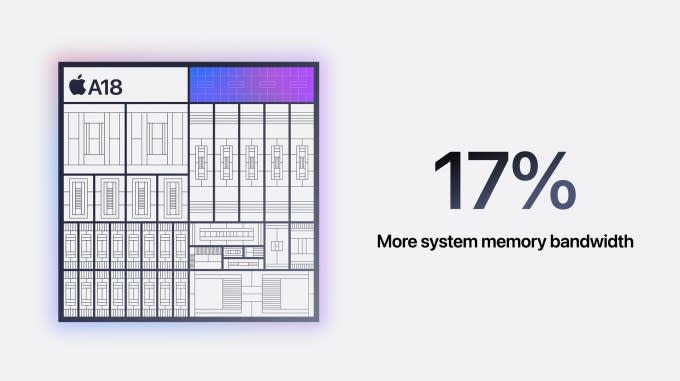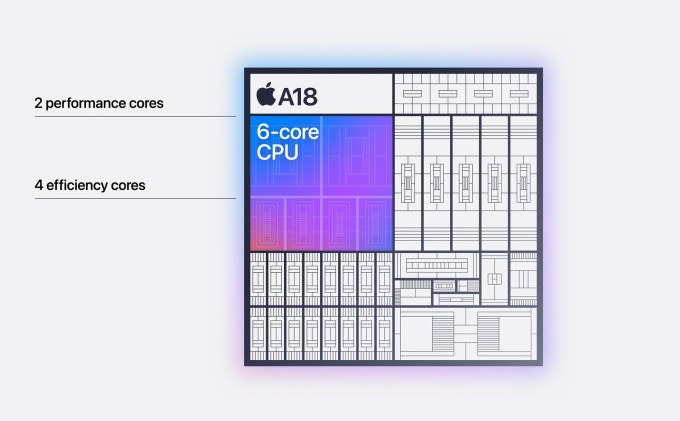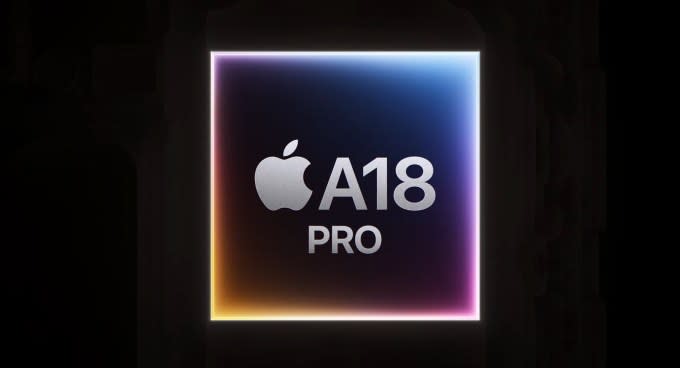Apple announces its new A18 and A18 Pro iPhone chips
To nobody's surprise, Apple on Monday debuted its A18 system-on-a-chip, the successor to the A17 Pro chip it announced at its last iPhone event. The new chip was announced Monday at Apple's "Glowtime" event.
If you recall, at that time, Apple only announced an A17 Pro, which was featured in the iPhone Pro and Pro Max models, leaving some to speculate that a regular A17 chip would later find its way to other Apple products. With last year's models, Apple kept the standard iPhone 15 on the A16 Bionic chip it launched with the iPhone 14 Pro.
Today, Apple is bringing the new A18 chips to the standard iPhone and also launching a more powerful A18 Pro for its Pro models.

Unlike with other chip announcements, Apple was a bit coy with exact details, though we'll probably get a few more after the event.
Let's start with the A18. We know that the A18 is built on a second-gen 3nm process, for example, but that was also true for the A17 Pro. The A17 Pro was a 19-billion transistor SoC and featured six CPU cores (two performance and four efficiency ones), six GPU cores, and a 16-core Neural Engine that topped out at 35 TOPS.

For the A18, Apple is going with a six-core CPU but stepping the GPU down to five cores. The company isn't comparing the A18 to the A17 Pro. Instead, it promises a 30% improvement in CPU performance over the A16 Bionic. Similarly, for the GPU, it promises a 40% improvement. As for the 16-core Neural Engine, the same number of cores we saw on the A17 Pro, Apple promises it will see a 2x improvement.

For the A18 Pro, Apple says the six-core CPU is 15% faster than the A17 Pro. Like before, it features two performance and four efficiency cores. The 16-core Neural Engine promises 35 TOPS, comparable to the A17 Pro, which Apple says is faster than before, though it's the same as the A17 Pro.
What the A18 Pro does have, though, is 17% more memory bandwidth, which matters for larger on-device models. All of this means that Apple Intelligence will run 15% faster on the iPhone Pro 16 when compared to last year's models.
Apple also updated the image-processing capabilities of the A18 Pro chips, which now promise a 2x improvement for video encoding, for example.

For gamers, Apple also noted that it updated the iPhone 16's thermal design to more efficiently eliminate heat. The company also noted that the new chips now support raytracing on iPhone 16 for more realistic images and support for "AAA" games. Until now, this feature was restricted to the iPhone 15 Pro models.


